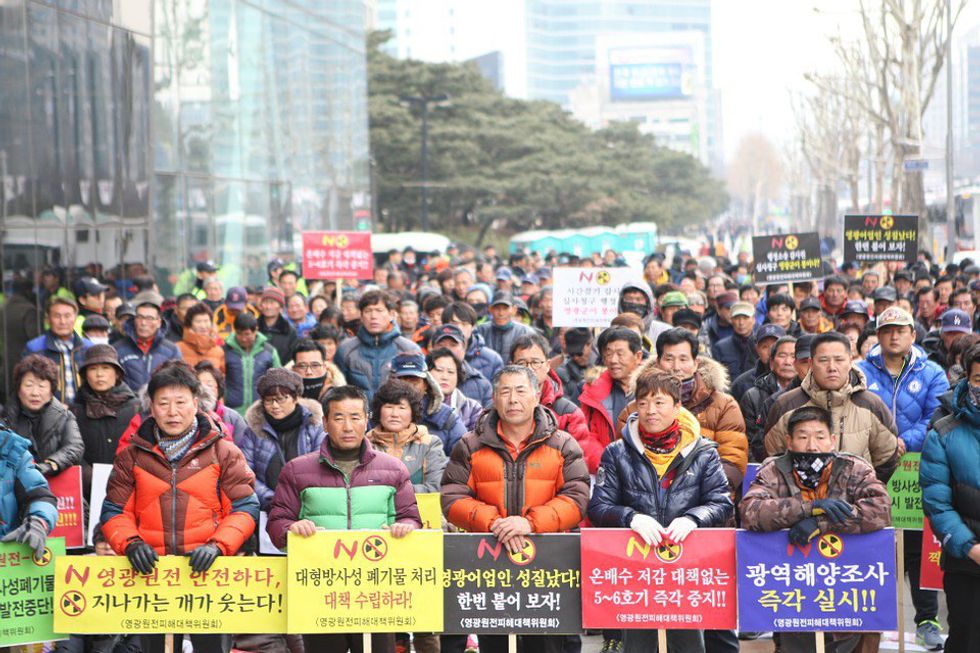U.S history is a chaotic picture painted by a plethora of monumental victories and hard hitting defeats — specifically in regards to cultural and environmental movements and human rights activism.
Throughout decades, streets across the nation have been engulfed by a sea of outraged activists and emotive cultural defenders, frivolously fighting on behalf of moral beliefs and to preserve land, resources and more for future generations to come.
Beginning in the late 1950s and continuing on through the 1960s, public concern in regards to the impact that human activity has on the environment began to position itself at the forefront of national concerns — notably credited to the level of extensive pressure put on Congress by environmental activists and protests.
It is within this time period that cognizance that humans have on the environment began to establish itself. A notion in which spread its roots to later bring forth more renowned environmental activism — developing into environmental preservation policies, regulations and more.
Continuing on into the 1960s, the Civil Rights Movement was one in which rung true with conscious intentions and longing for equality — desires that echoed throughout the nation. The progress in which was accomplished was renowned for ethnic, human rights, cultural, political achievement however was one in which civil brutality and malicious human nature was portrayed and equally a commonality. However, relentless efforts brought equality implemented and enforced through political institutions — filling the voids of oppression and injustice.
In more recent occurrence, U.S. citizens can look to the streets to see that protesting and activism is alive and well.
From the opposition efforts of Dakota Access Pipeline protestors at the Standing Rock Sioux Reservation in North Dakota, to uncontrollable and innumerable anti-Trump riots that continue to outbreak on a state to state level — in modern day society freedom of speech and the right to assemble are constitutional rights that U.S. citizens continue to exercise to their upmost extent.
History reflects a wide range of civil successes unwilling defeats has unwillingly and equally the aggressive behavior and brutality that is exemplified through the police force as well as civil disobedience protestors.
Consequently, while much human rights unjust can be derived from protesting — by police force and government institutions — activists continue to enforce their rights. Equally protesting can also be continuously encouraged by influential political figures.
According to a Daily Wire article released Nov, 18., on Thursday, Nov. 17, President Obama encouraged those in disagreement with the democratic election of Donald Trump to continue to exercise their right to assemble.
"I suspect that there’s not a president in our history that hasn’t been subject to these protests," said Obama. "So, I would not advise people who feel strongly or who are concerned about some of the issues that have been raised during the course of the campaign, I wouldn’t advise them to be silent."
Efforts to protect and preserve culture, ecology, human rights and the environment are enforced beyond social activist group and protestors. Additionally, numerous organizations across the nation contribute towards achieving similar and equal goals.
Sierra Club is one environmental organization that works to protect Arizona’s ecology such as wildlife, waters, people and communities.
Alicyn Gitlin of the Sierra Club recognizes the power that comes from joined forces. Gitlin also enforces the notion that if change its to bare itself for various human activism movements, individuals and communities must get involved.
However, peaceful protest can revert into extremism is some cases consequently resulting in goals lost sight of and also lead to violence.
"I respect civil disobedience but I don't really support it when it puts peoples lives at risk because I don't think that it helps anyone," said Gitlin. "Whats happening at Dakota and people re getting pepper sprayed and dogs on them and whats the difference here? those people are exercising their free speech, they are not hurting anyone, they are not raising arms at anyone and they are not putting anyones lives in danger, they are just asking to be heard. its so frustrating to me."
However, Gitlin does not discourage activism or protesting. Gitlin reflects on the innumerable civil accomplishments through history, hoping to shed light on whats possible — and encourage continued involvement in regards to current modern day movements.
"I do have a lot of fear for human rights and I have hopes that a future government administration could continue to protect and enhance protections," Gitlin said.
Looking into the future, civil disobedience and activism are expected to remain a tool that is used to assert and protect ones beliefs. However, other tolls will be used to promote change — donating to organizations, becoming aware to local and national discourse, and more — to upholding government officials and legislatives to their political, environmental, human rights and cultural preservation responsibilities.













































